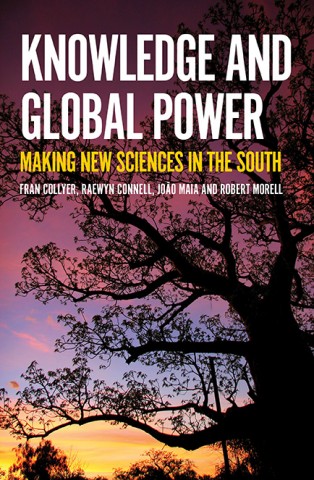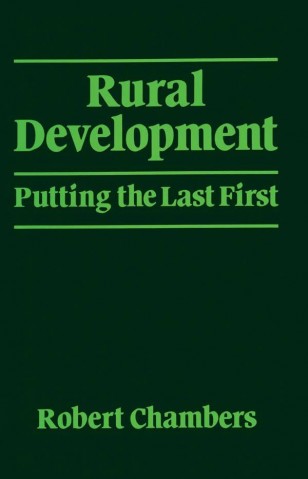In 1983 Robert Chambers published "Rural Development: Putting the Last First." If you have not come across this book, it is well worth finding a copy. As a book written more than three decades ago, it offers some perspective on what lessons have been learned. However, this book is particularly challenging to read as you encounter issues that are almost exactly the same today as they were in 1983.
The book begins exploring biases – a topic everyone needs to critical (re)reflect upon all the time. Specifically, Chambers highlights those related to rural experiences: "The direct rural experience of most urban-based outsiders is limited to the brief and hurried visits, from urban centers, of rural development tourism. These exhibit six biases against contact with and learning from the poorer people. These are spatial – urban, tarmac, and roadside; project – toward places where there are projects; person – toward those who are better off, men rather than women, users of services and adopters of practice rather than non-users and non-adapters, and those who are active, present and living; seasonal , avoiding the bad times of the wet season; diplomatic, not seeking out the poor for fear of giving offence; and professional, confined to the concerns of the outsider's specialisation. As a result, the poorer rural people are little seen and even less is the nature of their poverty understood." (p. 2) In a previous post on Eyben's 2014 book, I posed the question to what extent the biases are unintentional, when in fact choices are being made (specifically those of choosing to live an expat live and entrenching the biases). Chambers also notes this: "There is also an element of choice. Outsiders choose what to do – where to go, what to see, and whom to meet" (p. 4).
Chambers' second topic of concern is that of the "negative academic" and the "positive practitioner" divide: "Outsiders polarise into two cultures: a negative academic culture, mainly of social scientists, engaged in unhurried analysis and criticism; and a more positive culture of practitioners, engaged in time-bounded action. Each culture takes a poor view of the other and the gap between them is often wide" (p. 28). Further: "to some critical and intolerant academics, practitioners are narrow-minded philistines and at best naïve reformists, part of a system of exploitation of which they are largely unaware" (p. 29). Chambers understands these divides as being rooted in training as academics are taught "to criticise and are rewarded for it" but also notes that the "critical attitudes have made an enormous contribution" (p. 29). I can only assume this has moderately improved since the early 1980s, but nonetheless continues (asthis 2016 development studies book highlighted). For the critical academics, Chambers offers some thoughts for their reflection: "It is easy to write about what ought to be. The hard question is how, in the real, messy, corrupting world to encourage and enable more people to move in these directions" (p. 189).
I found it quite interesting that Chambers raised a key challenge to the research and academic community – again, in 1983 – that has still not been addressed in a substantial way: "Supposedly rigorous in research methodology, academics are astonishingly unrigorous in the diffusion of their findings. To impress peers and promotion boards they publish impenetrable prose in prestigious journals… Enormous sums are devoted to research and little to diffusion of research results. Diffusion and impact are often left to take care of themselves" (p. 62-63). To this concern, I add the challenges of people who need access to the research (i.e. government staff, policy makers) do not have access to the journal articles.
One of the practical solutions Chambers offers to challenges the biases is for outsider professionals "to step down off their pedestals, and sit down, listen and learn" (p. 101) and to recognize "small farmers as professionals and colleagues, as fellow experimenters and developers of technology" (p. 206). The final chapter, however, explicitly offers concrete recommendations, and concludes: "These six approaches – sitting; asking and listening; learning from the poorest; learning indigenous technical knowledge; joint R and D [Research and Development]; learning by working; and simulation games – all reverse the learning process. They encourage and enable those being trained or educated to learn from the many below and not just from the few above" (p. 209).


